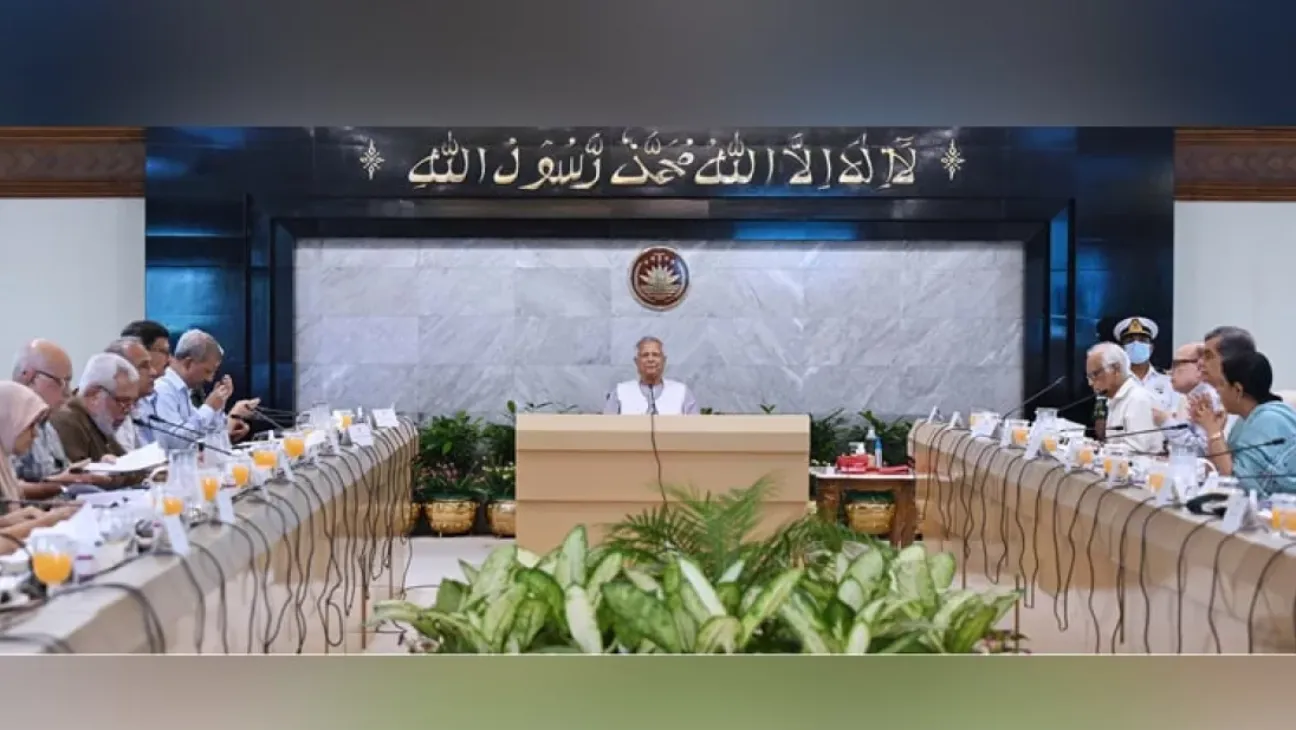The Bangladesh Advisory Council has approved amendments to the Revenue Policy and Revenue Management Ordinance 2025, restructuring the country’s revenue administration and confirming that experienced officers will lead the newly created departments.
The decision came Thursday at a meeting chaired by Chief Adviser Professor Muhammad Yunus at his Tejgaon office in Dhaka. The move marks a significant step in the government’s effort to implement reforms in the revenue sector after months of protests by officials of the now-defunct National Board of Revenue (NBR).
Shafiqul Alam, the chief adviser’s press secretary, told reporters that any qualified cadre officer could be appointed to head the new Revenue Policy Department or serve as secretary in the two divisions formed after the dissolution of the NBR. Selection will be based on qualifications, experience and fairness.
“The appointment process will not be limited to one group of officers,” Alam said. “It was decided that competence and integrity will guide the selections.”
The amendments followed recommendations from a committee led by Energy Adviser Muhammad Fouzul Kabir Khan. The press secretary noted that while the secretary of the Revenue Management Division will still be appointed under existing procedures, the leadership of the Revenue Policy Department opens to a wider pool of candidates.
Protests and disputes over reform
The reform process has been contentious. The original ordinance, issued on May 12, abolished the NBR and divided it into two departments: revenue policy and revenue management. Employees and officials protested for about six weeks, halting work at customs and tax offices nationwide.
By late June, protests ended after business leaders stepped in. Disciplinary actions, like transfers and dismissals, are still happening. On June 29, the Advisory Council approved ordinance changes based on stakeholder feedback.
Shafiqul Alam said the council’s committee engaged with NBR staff, cadre associations, members of the reform advisory committee and business representatives. Teams visited field-level income tax, customs and VAT offices before finalizing the amendments.
Focus shifts to money laundering
At the same meeting, the government also addressed ongoing efforts to trace and recover assets laundered abroad. Alam said joint teams from banks, the Anti-Corruption Commission, NBR and the Criminal Investigation Department are working on the issue.
“It is a very extensive task,” he said, adding that full recovery could take years.
The Central Intelligence Cell (CIC) of the NBR has identified about Tk40,000 crore laundered to several countries. The findings came after searches across seven cities in five countries earlier this year. CIC Director General Ahsan Habib briefed the chief adviser on the matter.
When asked how much of this money could realistically be recovered, Alam pointed to legal hurdles. “There are many complications. Assets are tied up in different jurisdictions,” he said. “We cannot name all individuals or reveal locations. Some assets have already been reported in British newspapers.”
Alam said the government is exploring the possibility of selling foreign-purchased assets and bringing the proceeds back to Bangladesh. “These works are being done seriously,” he said, though he cautioned the process would take time.
Through the reform ordinance and the battle against money laundering, the interim government aims to reclaim control over revenue policy, fight corruption, and rebuild confidence in the tax system.









